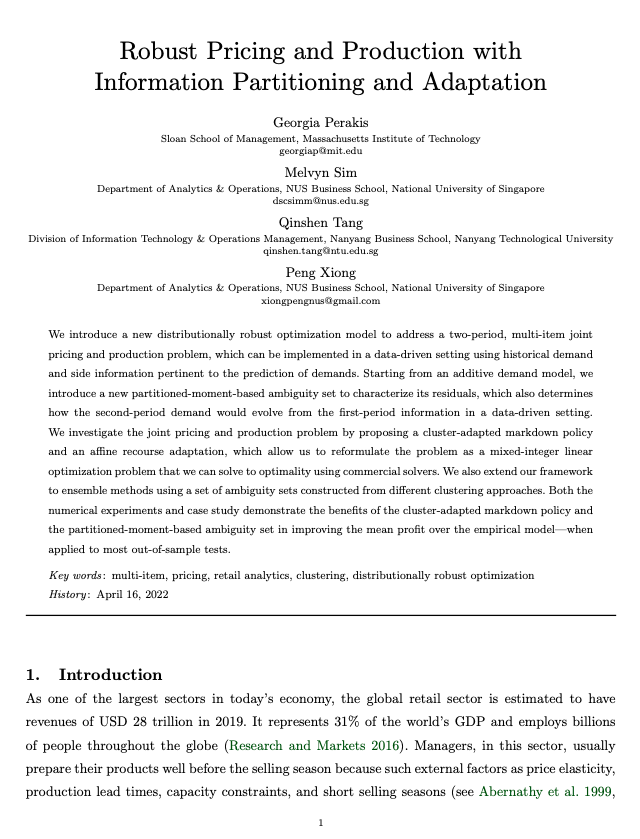We introduce a new distributionally robust optimization model to address a two-period, multiitem joint pricing and production problem, which can be implemented in a data-driven setting using historical demand and side information pertinent to the prediction of demands. Starting from an additive demand model, we introduce a new partitioned-moment-based ambiguity set to characterize its residuals, which also determines how the second-period demand would evolve from the first-period information in a data-driven setting. We investigate the joint pricing and production problem by proposing a cluster-adapted markdown policy and an affine recourse adaptation, which allow us to reformulate the problem as a mixed-integer linear optimization problem that we can solve to optimality using commercial solvers. We also extend our framework to ensemble methods using a set of ambiguity sets constructed from different clustering approaches. Both the numerical experiments and case study demonstrate the benefits of the cluster-adapted markdown policy and the partitioned moment-based ambiguity set in improving the mean profit over the empirical model—when applied to most out-of-sample tests.

